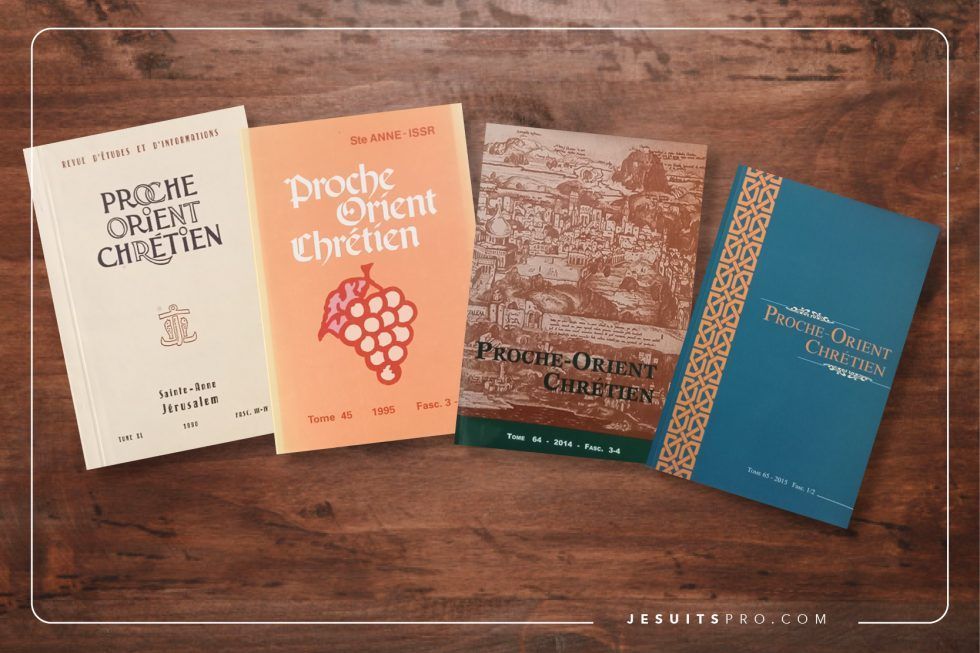
“The Middle East is a powder keg that has exploded! At this moment, the damage cannot be measured, and the future seems more uncertain than ever. The excess of violence and the prevailing chaos leave us perplexed and challenge both political and religious authorities. International interference suggests a plan to reconfigure the region — but what kind? On what basis? We painfully question the various models of plurality, coexistence and harmony, as well as their actual value. Have they failed? For what reasons? What would be the alternative? Can the peace of the strongest endure despite the multiple injustices and the blood of the victims who, as a last resort, entrust their fate to ‘God’? Can a new model of civil state or society emerge from this chaos, inspired by a democratic spirit? Can political, economic or financial interests alone determine the destinies of peoples, imposing an evolved version of ‘neo-colonialism’? The coming years or decades will no doubt reveal the fate of the countries in the region — particularly Syria, Palestine and Lebanon — as well as the level of trust in the international regulatory and peacekeeping organizations established after the two world wars, and the credibility and effectiveness of their roles.”
These words are from the editorial written by Father Gabriel Hachem, editor-in-chief of the journal Proche-Orient Chrétien (POC), in the opening of a new issue of this publication. This edition coincides with the 150th anniversary of Saint Joseph University (USJ) and also marks 75 years of this unique journal and ten years since its transfer to Beirut.
Published since 1951 in Jerusalem under the auspices of the White Fathers (Missionaries of Africa) at the Sainte-Anne Seminary, POC encountered, at the turn of the 21st century, the historical upheavals that have shaped the region, as well as the aging of most of its leaders and contributors. There was even talk of suspending its publication or merging it with other journals. Realizing what a loss that would be, Salim Daccache, S.J., then Dean of the Faculty of Religious Sciences and now Rector of USJ, proposed in 2009 to ensure its continuation. By early 2015, the transfer from Jerusalem to Beirut was successfully completed. It is now overseen by the Center for Studies, Research and Publications on Eastern Christianity (CERPoc) at USJ. As a living record of the life of the Churches and the ecumenical movement in the Middle East, it has been included since 2023 on Cairn.Info, the leading academic platform for French-language scientific publications. The journal publishes academic material in English, French and Spanish in the fields of humanities and social sciences, technical sciences and medicine.
In This Issue
Synodality, theological dialogue and Christian-Muslim relations are at the heart of this edition. Amphilochios Miltos analyzes, from an Orthodox point of view, the impact of the report from the first session of the Synod of Bishops’ Assembly (2023) on ecumenical relations between Catholics and Orthodox. Samouil Ibrahim examines the evolution of synodal spirit in the Maronite Church, from the Lebanese Synod (1736) to the Patriarchal Synod (2003–2006). Theresia Hainthaler presents an assessment of the ecumenical relations of the Assyrian Apostolic Church of the East. Frans Bouwen reflects on twenty years of dialogue between the Catholic Church and the Oriental Orthodox Churches, and offers a forward-looking perspective. Antoine Messarra reviews the common declarations between Muslims and Christians (1954–2012), published by the Institute for Christian-Muslim Studies at USJ in Beirut under the direction of Juliette Haddad, with contributions from Augustin Dupré La Tour and Hicham Nashabé.
In the “Themes in Context” section, Herman Teule outlines the challenges facing the Chaldean Church and its situation in the diaspora. The issue of emigration of Eastern Christians to the West is drawing increasing interest and demands special attention, as recommended by the Assembly of the Synod of Bishops in Rome throughout the synodal process since 2021. David Neuhaus exposes the dramatic situation of migrants in Israel following the fateful date of October 7, 2023. Finally, in preparation for the Jubilee Year 2025, Thérèse Salwa explores the theme of hope through the Youth Forum in Lebanon, launched by the Youth of the Assembly of Catholic Patriarchs and Bishops in Lebanon (APECL). The journal’s “Chronicles” section provides updates on the current events of Churches and countries in the region.
A Focus on Synodality
Amid the turmoil, the Catholic Church, through the 16th Synodal Assembly (2023) initiated by Pope Francis, offers a path of renewal centered on synodality. This concept, rooted in the Eastern tradition, is now positioned as the cornerstone of urgent ecclesial reform: overcoming clericalism and traditionalism, integrating women and youth, and rethinking ecumenical and Christian-Muslim relations. The contributions in this issue examine this critical challenge — with both hope and resistance — considering the legacy of historic synods (Lebanese of 1736, Patriarchal of 2003–2006), progress in interfaith dialogue (common declarations from 1954–2012), and the struggles of Churches in the diaspora.
The chronicles also reflect the human crises at play, such as the exodus of Christians from the East and the condition of migrants in Israel post–October 7, 2023, while the jubilee commemorations (150 years of USJ, 75 years of POC) serve as a call to root hope in a troubled context. This issue is a rich blend of theology, geopolitics, and the quest for human dignity, challenging us to rethink the future of a high-risk region.
In addition to Father Gabriel Hachem, Greek-Catholic priest and professor at the Pontifical Faculty of Theology at the Holy Spirit University of Kaslik, the journal includes notable contributors such as Souraya Bechealany, former President of the Middle East Council of Churches and member of the Joint Theological Commission for dialogue between the Catholic Church and Oriental Orthodox Churches. Director of CERPoc, Bechealany is also a member of the theological committee of the Synod of Bishops on Synodality. The editorial secretary of POC is Lina Iskandar Hawat, academic head of the doctoral studies program at the Faculty of Religious Sciences. Coordination of the Chronicles is handled by Sister Tidola Abdo, a faculty member at the same institution.
The editorial board includes Roula Abi Habib, Director of the Center for Studies on the Modern Arab World (CEMAM) and professor at USJ; Father Khalil Chalfoun, former rector of La Sagesse University; Joseph Maalouf, professor at the Lebanese University; and Thom Sicking, former dean of the Faculty of Religious Sciences.
The scientific committee comprises several Lebanese and international professors and researchers, including Christian and Muslim theologians.
The journal is published twice a year. POC is sold by subscription only in Lebanon and abroad.
POC is also available on Cairn.info.
ISSN: 0032-9622
Address: Proche-Orient chrétien,
Saint Joseph University. Faculty of Religious Sciences. Damascus Street
P.O. Box 17-5208 Mar Mikhaël
Beirut / 1104-2020, Lebanon



Comments